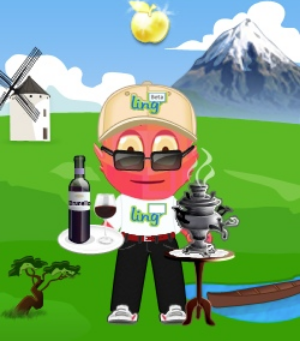I just finished my crazy run through Norwegian. A 26 day streak where I added over 40,000 known words, which I could do cause I´m a native Icelander who is also fluent in Danish and Swedish. Here are my points, tips and observations from this time. Number 3 is the most important one!
-
Material in LingQ
Norwegian is still in beta-mode and there isn´t that much material for it in LingQ yet, especially not advanced material. When you have reached an intermediate or high level you should focus on the news feed in LingQ. -
Bad material for importing
Often the easiest types of material to import are stories from the public domain. Beware of this in Norwegian. Stories from the early 1900s or earlier are often quite bad. That´s because Norway was under Danish rule from about 1300-1800 and the written language became almost identical to the Danish one. Only after the early 1900s was there an effort to clean up the written language. So if you use sources like Project Runeberg or Project Gutenberg, it may be good for the other Nordic languages, but NOT for learning modern Norwegian. Also, if you import very, very old Norwegian, like Norse mythology poems from the middle ages, it´s also not going to be good for learning modern Norwegian and will look a lot like Icelandic or Old Norse. -
GOOD material for importing
Now the good new is I did find some good sources for importing.
Norske folkeeventyr (Nowegian folk-fairy tales) some fairly short adventures, but there is a decent number of them, in proper Norwegian and they do have a Norwegian cultural relevance:
http://folkeeventyr.no/
Store norske leksikon (The big Norwegian encyclopedia). This one is absolutely great, much better than using wikipedia in Norwegian. Some people prefer to read stories, but if you enjoy more educational material, this is great. Especially good for improving your vocabulary in just about any subject. You can also read plenty of articles about Norway, it´s history, art, nature, customs, it´s ethnic groups, the vikings, the old Nordic mythology and Norway’s neighbouring countries.
https://snl.no/
-
Earning coins in Norwegian and Avatar
Lots of people don´t really care about this at all anyway, but for those who do there are two things. Unfortunately since Norwegian is still in beta mode, there aren´t really any properly Norwegian items for the Avatar yet. Also, probably for the same reasons, LingQ hasn´t seemed to have calculated which words are the most common yet, so pretty much all words seem to have the minimum worth of just one coin per level of knowledge (5 coins for making a new word known). This will make you ear coins quite slowly in comparison to languages that have made it out of beta-mode. -
There are two major dialects of Norwegian
They are called Bokmål and Nynorsk (book language and New-Norwegian). The former resembles Danish more and the latter is a little more similar to Icelandic. I think all material here on LingQ is in Bokmål. I´m not really sure how much Nynorsk I encountered when studying and importing into LingQ, because I think I´d understand it almost completely without any real trouble, but I think it was little or none at all. Bokmål is more of an official language and you are more likely to encounter it. The difficult thing about this is that this means there are many different ways of writing and speaking Norwegian “correctly”, because of the two dialects and because some old Danish like spellings may still be considered ok if perhaps semi-outdated. Below is an interesting page to check out if you want to gain more insight into Nynorsk.
https://www.nynorsksenteret.no/
Finally, my Norwegian Avatar here in the picture below, whose name is Trånd, says “Lykke til å lære norsk”
